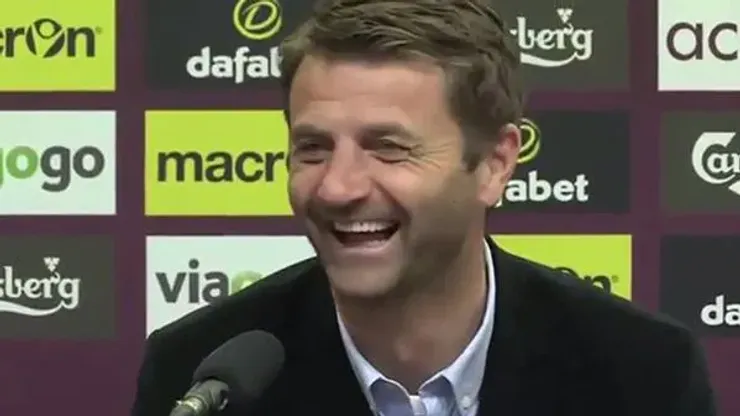Large elements of the British press derided Tim Sherwood when he managed Tottenham. While some of the criticisms might have been justified, many of the critiques were over the top. When Sherwood was appointed by a desperate Aston Villa club in February, the choice was controversial. Many writers and pundits have ridiculed Sherwood’s lack of tactical acumen and his motivational tactics.
Three months into his Aston Villa tenure, Sherwood has transformed the club from lifeless and losing to exciting, vibrant and successful. The Villans are pretty much safe from relegation in the Premier League and the rich vein of form they have found themselves has extended to cup football where the club is in the FA Cup Final for the first time since 2000.
The emergence of Tom Cleverley, a player disregarded by Louis Van Gaal, and the renaissance of Christian Benteke have highlighted Aston Villa’s run. Sherwood’s impact on these two players has not simply been motivational. It has been tactical, as he given Cleverley the freedom to push forward into spots when Villa is in possession, and with Benteke he has been asked to position himself more aggressively in a poaching position when the Villans are threatening the opposition goal.
The savvy statements of Sherwood in the press that entertain many in the media are often carefully placed to raise the confidence of his players. Such was the impact of his statement that Harry Kane, who Sherwood helped develop at Tottenham, could not, according to Sherwood, get into his Aston Villa team. The same can said for Sherwood’s recent press statement that Benteke was the best striker in Europe and was not for sale at any price. While fans and press might mock these statements, they have worked to raise the confidence of Aston Villa’s players at the most critical moments of the season. The results do not lie, Sherwood’s tactics both on and off the pitch have worked brilliantly.
Sherwood’s greatest sin might in fact be his nationality. Large elements of the British press are fascinated by foreign managers, intricate tactical setups and cosmopolitan-type squads. Sherwood’s public persona and his motivational tactics are very English in style and substance. The assumption has been made that Sherwood’s tactics lack sophistication and his press statements reflect a certain harshness of English managers. While many have viewed Sherwood as a figure of comedy, he is getting the last laugh with Villa’s success.
As English football does a self-evaluation, Sherwood’s success might open the door for more British managers at mid-table clubs. After being derided for his tactics throughout his tenure at Stoke City by large elements of the UK press, Tony Pulis is now rightly viewed as one of the top managers in English football after his amazing work at Crystal Palace and West Brom. Similarly, Sherwood’s success at Aston Villa must force some who have advocated the need for stylish and tactical managers to look at the virtues of those who have been reared in English football and don’t have an exotic sounding last name as one of the assets on their CV.
200+ Channels With Sports & News
- Starting price: $33/mo. for fubo Latino Package
- Watch Premier League, Women’s World Cup, Euro 2024 & Gold Cup
The New Home of MLS
- Price: $14.99/mo. for MLS Season Pass
- Watch every MLS game including playoffs & Leagues Cup
Many Sports & ESPN Originals
- Price: $10.99/mo. (or get ESPN+, Hulu & Disney+ for $14.99/mo.)
- Features Bundesliga, LaLiga, Championship, & FA Cup
2,000+ soccer games per year
- Price: $5.99/mo
- Features Champions League, Serie A, Europa League & Brasileirāo
175 Premier League Games & PL TV
- Starting price: $5.99/mo. for Peacock Premium
- Watch 175 exclusive EPL games per season






